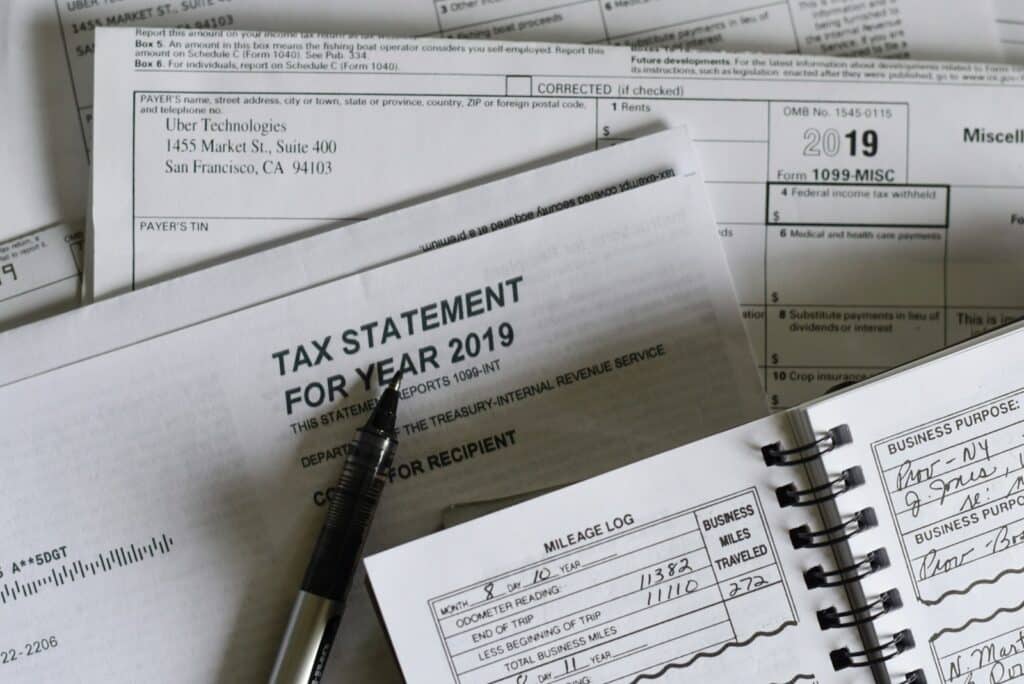Tax planning services are much more than just a yearly scramble to meet filing deadlines. Effective tax filing is crucial in optimizing financial health and reducing tax liabilities. For small business owners, it’s an integral part of optimizing financial health, reducing tax liabilities, and achieving long-term success. This blog dives into the world of tax planning services, exploring their benefits and how they align with your financial and business goals.
Whether you’re an entrepreneur seeking clarity on tax laws or an established business owner looking to boost your financial efficiency, this guide provides actionable insights to help you take control of your tax planning.

Understanding Tax Planning
What is Tax Planning?
Tax planning is the strategic process of organizing your financial affairs to minimize your overall tax liability while adhering to legal regulations. It involves leveraging tax benefits, understanding deductions, and making informed decisions to maximize your wealth. Professional guidance is crucial in managing complex tax situations, including the preparation of your tax return, to ensure compliance and minimize tax risk.
Why is Tax Planning Important?
For small business owners, an effective tax planning strategy saves money and ensures compliance with IRS regulations. Beyond saving you from costly penalties, proactive tax planning helps align your financial picture with your business goals.
Key benefits of tax planning include:
- Minimizing Your Overall Tax Bill: Lower your tax payments legally by taking advantage of deductions and tax-efficient strategies.
- Improved Cash Flow: Plan your taxes in advance to ensure smoother cash management throughout the year.
- Enhanced Financial Decision-Making: By understanding taxation, you can strategically manage investments, expenses, and growth opportunities.

Creating a Comprehensive Financial Plan
Tax planning shouldn’t be looked at in isolation; it’s an essential component of your overall financial plan. By integrating it with your broader financial strategies, you can better align your wealth plan with long-term business goals.
Integration with Investment Management and Strategy
When tax planning is paired with investment management, the results are far more impactful. Crafting an investment strategy that focuses on tax-efficient results is crucial. For example, diversifying investments or timing asset sales can produce tax advantages. Coordinated planning ensures that your business grows while staying tax-efficient.
Working with a tax advisor or a financial planner can help create a more cohesive plan by combining strategies for budgeting, investments, and risk management—all while factoring in taxation. With their expertise, you can identify opportunities to shift income or defer taxes, ensuring better returns on your investments.
Integrating Tax Planning Into Your Financial Life
Tax planning is an essential aspect of financial planning that involves integrating tax strategies into your overall financial life. By weaving tax considerations into your broader financial plan, you can achieve a more cohesive and effective approach to managing your finances.
A well-planned tax strategy can help individuals and businesses minimize their tax burden, increase cash flow, and achieve long-term financial goals. For instance, by strategically timing income and expenses, you can reduce your overall tax bill and free up resources for other financial priorities.
To integrate tax planning into your financial life, it’s essential to assess your current financial situation, including your income, expenses, assets, and debts. This comprehensive assessment provides a clear picture of where you stand financially and highlights areas where tax strategies can be most effective.
A tax professional can help you develop a customized tax plan that aligns with your financial goals and objectives. They can guide you through the complexities of tax laws and regulations, ensuring that your tax plan is both compliant and optimized for your unique situation.
Effective tax planning involves understanding tax laws, regulations, and policies to make informed decisions about investments, deductions, and credits. For example, tax-deferred savings accounts, such as IRAs and 401(k)s, can help you save for the future while reducing your current taxable income. Similarly, tax-loss harvesting can offset capital gains, and charitable giving can provide valuable tax deductions.
It’s essential to regularly review and update your tax plan to ensure compliance with changing tax laws and regulations. Tax laws are constantly evolving, and staying informed about these changes can help you adapt your strategies and maintain tax efficiency.
A comprehensive financial plan should include tax planning, investment management, and wealth management to ensure overall financial well-being. By integrating these elements, you can create a robust financial strategy that supports your long-term goals and secures your financial future.

Tax Planning Strategies
Leveraging Tax Laws
Tax laws can seem overwhelming, but when navigated strategically, they can open doors to significant opportunities for small businesses. Here are some key strategies to boost tax efficiency:
- Take Advantage of Deductions – Common deductions for small businesses include office expenses, vehicle costs, and marketing expenses. Keep detailed records to maximize these benefits during tax preparation.
- Explore Retirement Plans – Contributing to a SEP IRA or Solo 401(k) not only secures your future but also reduces your taxable income for the past year.
- Defer or Accelerate Income – Work with a tax advisor to determine whether deferring income (or accelerating expenses) can offer you temporary tax relief, aligning with your business cycle.
- Use Tax Credits – Tax credits for things like research, development, or eco-friendly business upgrades can directly reduce the amount you owe.

Tax Planning for Individuals and Businesses
Whether you’re planning taxes for yourself or your business, tailoring strategies to your situation is essential.
Individual Tax Services
Our tax advisors specialize in helping individuals manage their tax burden. Effective tax filing is crucial in optimizing tax-saving opportunities and managing annual tax obligations. Services may include discovering untapped tax deductions, reviewing tax returns, calculating capital gains, and ensuring penalties are avoided.
For high-net-worth individuals, effective wealth planning that incorporates tax strategies ensures better alignment with investment goals for retirement or inheritance planning.
Business Tax Services
Companies, particularly those with complex circumstances, require tax professionals equipped with experience working directly on corporate tax planning and compliance. Beyond ensuring you meet all IRS requirements, experts streamline tax preparation to avoid surprises, such as penalties for inaccurate filing.
Modern tax technology now offers secure and user-friendly platforms to assist with these needs.

Trust and Estate Planning
Preparing for Future Generations
Tax planning extends beyond your immediate needs. Setting up trusts, developing gifting strategies, and managing estate taxes serve to secure your legacy. By working hand-in-hand with attorneys and financial advisors, tax professionals create customized solutions that ensure inheritance and gift taxes remain minimized for beneficiaries.

International Tax Compliance and Planning
Operating in the global market comes with its own set of challenges, particularly with taxation. Whether you’re managing real estate overseas or running a thriving online store, international tax compliance is critical. Experts well-versed in cross-border tax laws can ensure that you satisfy local requirements while avoiding double taxation issues.

Selecting a Financial Advisor for Tax Planning
Tax planning is complex. Partnering with the right financial advisor can make all the difference to your business’s bottom line. Look for professionals with certifications like Certified Financial Planner (CFP) or Chartered Financial Analyst (CFA), as well as proven expertise in small business taxation.
Advisors must operate in your best interests, offering clarity to ensure your financial situation—and ultimately, your investments—remain healthy.

Implementing Your Tax Plan
A detailed tax strategy only holds its value if executed correctly. Tax advisors assist small businesses and individuals with implementing these strategies. From calculating estimated tax payments to claiming benefits and ensuring timely filing, a professional ensures you remain organized and compliant.
Furthermore, regular reviews of your financial situation keep your tax master plan aligned with changes in your business. This means you never miss out on opportunities or risk financial penalties.

Start Optimizing Your Taxes Today
Don’t wait until tax season to focus on your financial plan. Strategic tax planning is an ongoing process, and the earlier you begin, the more effectively you can reduce your tax liability.
Take the first step toward a well-planned financial future by seeking guidance from experienced tax advisors. At Pecunio, our tailored services help small business owners make smarter financial decisions. Simply reach out to book a consultation and begin optimizing your financial picture today.
Resources for Effective Tax Planning
Here are some helpful resources to assist you in optimizing your tax strategy and staying informed about financial best practices:
- IRS Official Website – Access up-to-date tax rules, forms, and publications directly from the Internal Revenue Service.
- Small Business Administration (SBA) Tax Resources – Discover valuable tax tools and advice tailored to small business owners and entrepreneurs.
- Tax Foundation – Learn about tax policy and its implications through in-depth articles and research.
- TurboTax Tax Tips Blog – Read practical advice for managing taxes and maximizing deductions for individuals and small businesses.
- Your Firm Name Knowledge Center – Explore our repository of articles, guides, and webinars designed to help you make informed tax and financial decisions.
- National Association of Tax Professionals (NATP) – Gain access to resources and support tailored for tax professionals and individuals seeking reliable tax information.
- IRS Free File – File your federal taxes for free using this official resource for taxpayers with qualifying incomes.
- H&R Block Tax Information Center – Find helpful tax insights, articles, and services to simplify your tax filing process.
- 1040.com Tax Guide – Browse an easy-to-understand guide with tips and tools for managing taxes effectively.
- Investopedia Tax Articles – Explore detailed content on personal and business tax topics, written in a clear and approachable style.
Leverage these resources to gain confidence in your tax planning efforts and stay proactive throughout the year!

